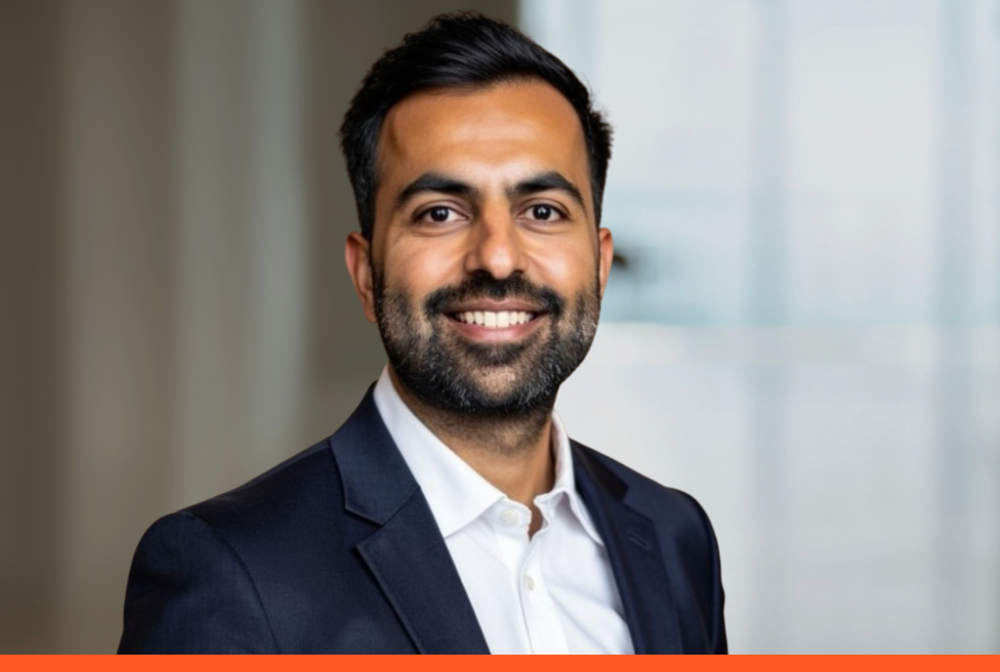
Ahmed Mahar on Recalibrating for Today’s Investment Landscape
- What motivated you to join the Advanced Value Investing program?
- What specific challenges were you hoping to address and how did the program help?
- What was it like learning from Professor Tano Santos?
- What were some of your key takeaways from the program?
- Who would you recommend the Advanced Value Investing program to?
Q&A with Ahmed Mahar
Ahmed Mahar is no stranger to navigating global markets. With over a decade at J.P. Morgan Asset Management—spanning treasury, FX portfolio management, and currency trading—he has operated at the intersection of institutional rigor and macro strategy. Most recently, he led investment efforts for The Diary of a CEO and Flight Fund, the private investment arm of entrepreneur Steven Bartlett, deploying capital into high-growth European ventures and optimizing operations for one of the world’s largest podcast brands. Now, as founder of Kana Capital—a long-duration investment holding company inspired by Berkshire Hathaway—Ahmed is doubling down on his value-driven approach. To rethink valuation in a world dominated by intangible assets and shifting fundamentals, he enrolled in Columbia Business School Executive Education's Advanced Value Investing program.
We spoke with Ahmed to explore how the program shaped his thinking and deepened his approach to long-term investing.

What motivated you to join the Advanced Value Investing program?
Value investing is an investing discipline in which the light bulb either goes off or it doesn’t. Having been the primary reason for my decision to venture into the asset management industry in 2012, I viewed this as a full-circle opportunity to recalibrate with an investing style and philosophy that resonated deeply with me. Value investing has naturally evolved with time, with its main advocates demonstrating that change in recent decades. With Columbia Business School at the forefront of the value investing discipline, joining the program was an easy decision, particularly in today's dynamic backdrop and given the shift in focus towards businesses more heavily weighted towards intangible assets.
What specific challenges were you hoping to address and how did the program help?
The application of value investing in the modern era, where most new era businesses do not typically meet traditional value investing criteria has posed a problem for investors. The program offered insights into how many of the world's greatest investors have adapted to these changes. Specifically, it has required an alternative approach to valuation to account for accounting standards that have not kept pace with a change in the composition of assets of many of the world's most sustainable and high ROIC businesses. The program explicitly offers a simple, but effective valuation framework that overcomes these challenges, without compromising on the fundamental principles of value investing – namely the concept of a ‘margin of safety’.
What was it like learning from Professor Tano Santos?
It was an absolute pleasure learning from Professor Tano Santos. From the get-go, it was apparent that he was well prepared and immensely knowledgeable within his field through a sheer passion and dedication for his craft. The professor was able to succinctly articulate the historical context and evolution of the value investing discipline, to frame and subsequently address the challenges faced by the modern-day value investor. His teaching style was highly collaborative, and he welcomed questions and insights from the class; though I found his own perspective, breadth, and depth of knowledge so impressive, I was more than happy to listen to him rather than speak myself! He did an exemplary job in helping the students understand the program material, and I truly appreciated his multi-disciplinary approach when evaluating companies. I was particularly impressed with the manner in which he was able to conceptualize developments within a given industry and overlay them with the economic motives and incentives of the stakeholders interacting with a given company.
What were some of your key takeaways from the program?
A valuation framework on its own is not enough to unearth high return investment opportunities in the public markets; instead, one must harmonise the disciplines of economics, valuation, and accounting to truly develop conviction in an investment case.
Who would you recommend the Advanced Value Investing program to?
I would recommend the program to anyone with an interest in either public or private market investing, and who wishes to understand a modern day approach to investment evaluation.
Upcoming Programs with Tano Santos
$8,150
$8,150
Sign Up for Email Alerts
Sign up for program updates and content relevant to today's business leaders from Columbia Business School Executive Education.
